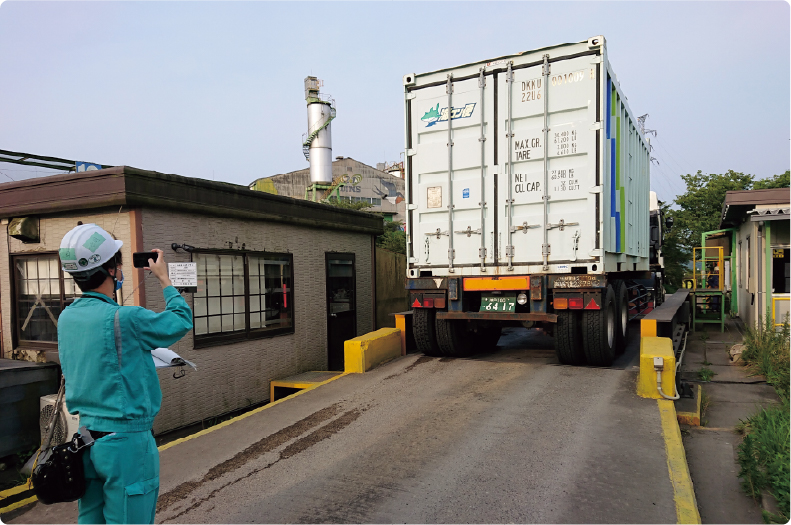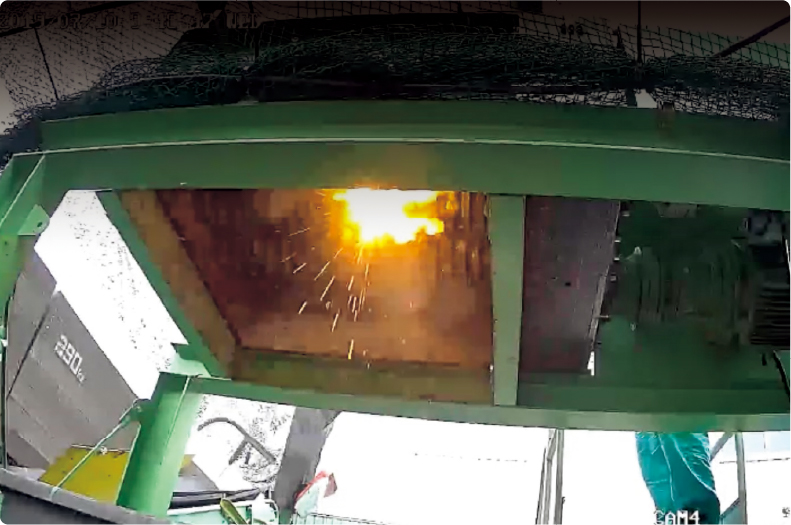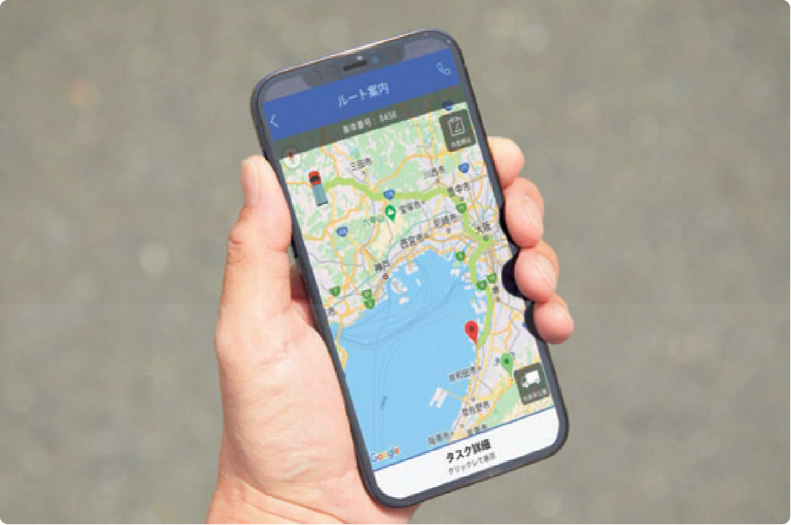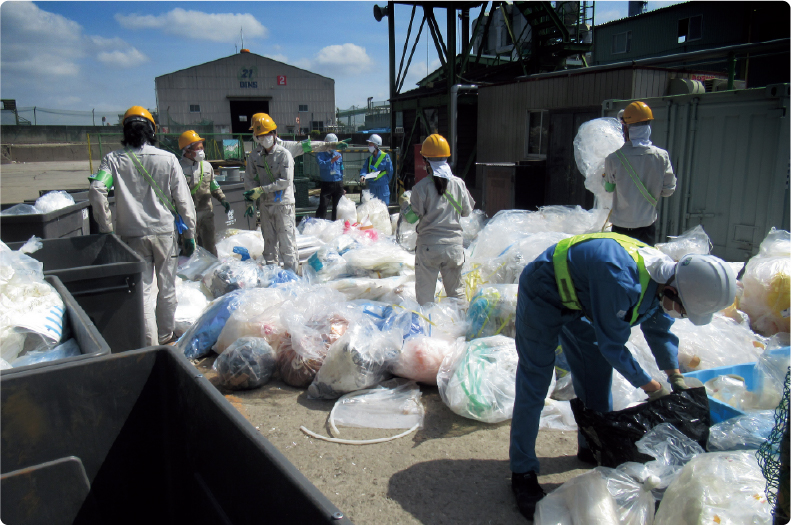Daiei Kankyo's Concept o Digital Transformation
In the waste management industry, which is considered to lag behind other industries in terms of digitalization,
industry-wide innovation driven by a digital transformation is essential if we are to create a decarbonized and circular economy.
The Daiei Kankyo Group aims to save labor in processes through the use of AI and IoT,
and to develop an industry-standard system in which arterial and venous businesses mutually share resource and waste data
Major initiatives
Disaster waste disposal information management system
In the event of a large-scale disaster, it is essential to establish a wide-area waste disposal system that provides transparent and reliable waste management information. The disas-ter waste disposal information management system developed by the Daiei Kankyo Group can manage the entire treatment process in real time by capturing on-site history and image data. This system is in use not only at disaster waste management sites where we are involved, but also at other sites.

Spark detection system
Many cases have been reported of lithium-ion batteries used in smartphones and other devices getting mixed in with waste and igniting during disposal.
To solve this problem, we developed a system in which an image processing system detects small explosions when lithium-ion batteries are crushed and processed, and automatically activates a fire extinguishing system. In addition to significantly reducing risks and the number of tasks that workers need to perform, the system is being used by municipalities and engineering companies, and the ignition data is stored in a database that can be used for remote monitoring, investigation of causes, and analysis of facility safety.

Automated vehicle dispatch system
In addition to responding to orders from customers and managing crews and vehicles, the dispatching of waste collection vehicles requires responding to industry-specific con-straints such as types of waste, vehicle types, and collection patterns, for which know-how based on experience is essential. The Daiei Kankyo Group developed an AI-based automated vehicle dispatch system through the Ministry of the Environment's Low Carbon Technology Research and Development Program , which not only leads to a reduction in CO2 emissions, but also reduces workload, improves vehicle dispatch efficiency, prevents human error, and visualizes numerical data. We are further develop-ing the system not only for use within our group, but also for release on the external sales market.

AI image identification and automated sorting robo
Waste sorting is done manually as well as by heavy machinery. To solve the labor shortage and improve recycling efficiency, we are developing an automated sorting robot that uses AI-based image identification.
Smart collection system
As the need for contactless and automated systems increases due to labor shortages and the COVID-19 pandemic, we are developing new technologies that include ”smart trash cans” and ”unmanned collection mobility”, and are conducting research in industry-academia collaboration for social implementation, including demonstration tests at amusement facilities.
Development of recycling technologies for small home appliance
Discarded smartphones and other electronic devices are said to be "urban mines" because they contain various metals that can be reclaimed and re-used for other purposes. We are participating in a public-private joint R&D project to come up with highly efficient ways of recycling these resources. We are developing technologies that automatically sort and disassemble products by creating a database from the disassembly of a vast number of products.
Development of technologies to recycle plastic resources
We are participating in a public-private joint R&D project to promote the effective sort-ing, collection, and recycling of waste plastics, one of the key strategies in plastic resource recycling. To develop an automatic sorting system, we are collecting data on the types and amounts of waste plastics to be collected, as well as their individual sizes and shapes.



